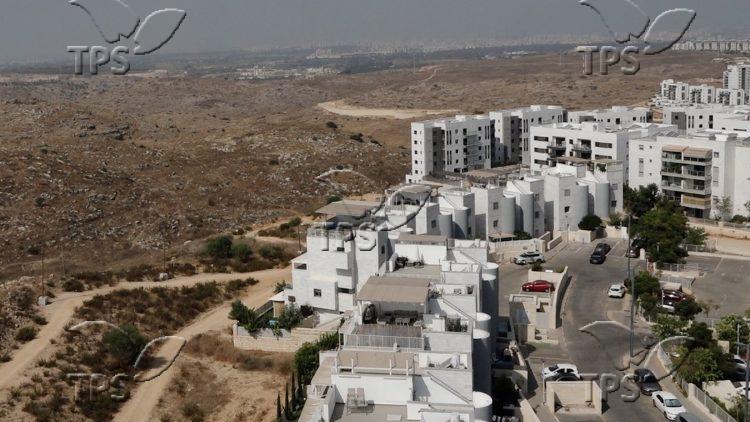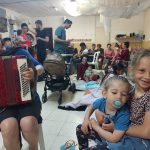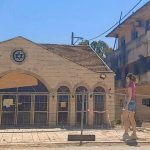‘We Live in Constant Danger’: Rosh Haayin Residents Form Grassroots Security Amid Growing Threat
Jerusalem, 16 September, 2024 (TPS-IL) -- From the roof of Eden Eliyahu’s apartment building on Eliyahu Ha-Navi St. in one of Rosh Haayin’s newest neighborhoods, a visitor looking towards the south sees stunning views of the nearby Migdal Tzedek nature reserve. But it’s the view to the east that has Psagot Afek’s residents concerned: illegal Palestinian buildings as close as 500 meters to their homes.
“If anything like October 7 happens here, the terrorists will get to the gate of the kindergarten on foot before I leave the office and get into my car,” Eliyahu tells The Press Service of Israel. She works for an insurance company in Petah Tikva about 15 km away, but since October 7, mostly works from home so as not to send her daughter to kindergarten.
The closest Palestinian village, Dayr Balut, is some five kilometers from the security barrier, but around 150 illegal Palestinian structures fill the open territory between the village and the barrier, according to Regavim, a non-governmental organization that monitors illegal Palestinian construction and land theft in Judea and Samaria. Some of the buildings stand in an army firing range.
“The illegal structures are not built just around Dayr Balut. The Palestinians build in specific directions, forming lines that connect Palestinian villages and approach the security barrier. These roads can be used for an attack,” says Moriya Tzefer, another Psagot Afek resident who has been trying to alert authorities to the danger.
The Civil Administration of Judea and Samaria has issued demolition orders for 120 of the structures, but none have been carried out.
Rosh Haayin lies between Tel Aviv and the Palestinian Authority.
Following Hamas’s October 7 attack, most of the Psagot Afek residents obtained gun licenses, in line with a nation-wide surge for permits.
Then they formed civilian security teams with the help of the police, who provided rifles.
Residents raised 36,000 shekels ($9,600) to buy an aerial drone for surveillance. But the drone was damaged and residents haven’t raised enough money to replace it. In the meantime, they’ve turned to privately-owned drones.
Police in Rosh Haayin also launched a WhatsApp group where residents can report security issues. People often share the results of their observations, such as Palestinian jeeps close to the barrier, or Palestinians with binoculars trying to look inside the buildings of Psagot Afek.
“But the police cannot reach them there,” resident Netalie Fuks told TPS-IL. “Behind the closed doors the authorities tell us, you chose to live here, if you don’t like it, you can move.”
The residents note with irony that they have fulfilled the slogans of the Palestinians that all of the Israelis are settlers.
“We don’t live near Gaza, and we don’t live in a settlement. We live in central Israel – and yet all of us are armed, and we live in constant danger of an attack,” Eden said.







